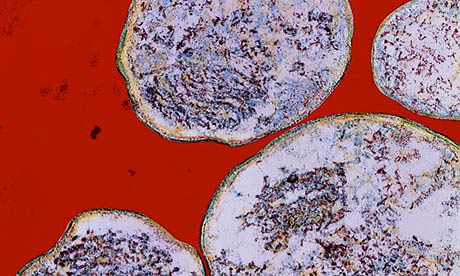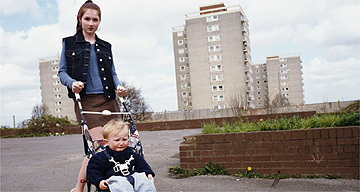Risky sex among those in their teens and early 20s is driving the numbers of sexually transmitted infections to new highs, the Health Protection Agency said yesterday, as it urged young people to limit their number of partners and have regular tests.
Overall, sexually transmitted infections (STIs) rose by 6% in 2007 over the previous year, the agency said, from 375,843 to 397,990 - the highest of recent years. Half of all newly diagnosed infections were in the 16-24 age group. Peter Borriello, director of the HPA's centre for infections, said that sex for young people was increasingly a part of life, but added: "If you are going to dive in the pool, then make sure you know how to swim. That really means wearing a condom."
Rates of chlamydia and genital warts are particularly high - 65% and 55% respectively of those infections are among 16- to 24-year-olds and so are half of all cases of gonorrhoea. Chlamydia is a particular worry because it is symptomless and yet can cause women to become infertile. A national screening programme has been introduced for chlamydia and is finding that around 10% of all those tested have the infection.
However, screening is only carried out when young men and women go to a doctor or clinic for some other reason, such as contraception, and are encouraged to be tested. Last year's target was to get 15% of the relevant population screened, but that has been missed.
Genital warts, of which there were around 122,000 cases last year including nearly 80,000 in young people, can be prevented by one of the two cervical cancer vaccines on the market. The Department of Health, however, has chosen the vaccine made by British manufacturer GlaxoSmithKline for the campaign beginning with young women in the autumn, which, unlike the Merck vaccine, does not prevent genital warts.
Some observers have speculated that GSK offered a low price for its vaccine, which has not been selected for mass vaccination campaigns in most of Europe or the US. The FPA (Family Planning Association), along with the Terrence Higgins Trust, were among the organisations that opposed the choice of the GSK vaccine.
One of the reasons for the rise in STIs is more testing, partly because more resources have been put into clinics, reducing waiting times. The HPA wants young people to go for a chlamydia test every year and every time they change their sexual partner. It says gay men should take an HIV test every year and every time they put themselves at risk.
But it also warns that tests alone will not bring the infection rate down and that people must change their behaviour - by having fewer sexual partners and avoiding overlapping sexual relationships.









